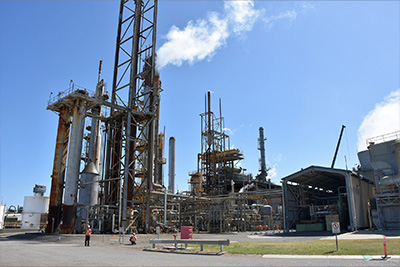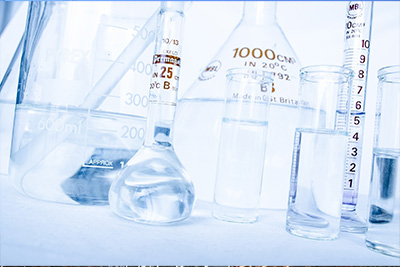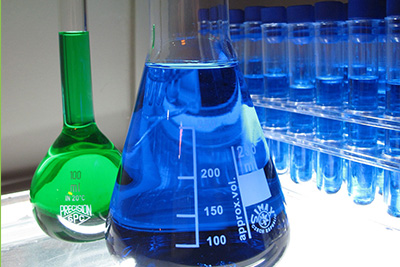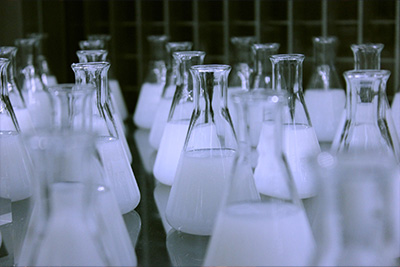-
![The Impact of Dime···]() 2024-11-30 The Impact of Dimethyltin Production···
2024-11-30 The Impact of Dimethyltin Production···The production of dimethyltin (DMT) significantly affects environmental sustainability in polyvinyl chloride (PVC) applications. DMT is commonly used as a stabilizer in PVC manufacturing to improve its durability and longevity. However, the synthesis and usage of DMT lead to various environmental concerns, including the release of volatile organic compounds and potential tin accumulation in ecosystems. These factors contribute to air and soil pollution, posing risks to human health and wildlife. Sustainable practices and alternative stabilizers need to be explored to mitigate these impacts and ensure the long-term environmental viability of PVC applications.
read more > -
![Mercaptide Tin Tec···]() 2024-11-30 Mercaptide Tin Technology in Modern ···
2024-11-30 Mercaptide Tin Technology in Modern ···This comprehensive review explores the application of mercaptide tin technology in modern PVC production. Mercaptide tin stabilizers play a crucial role in enhancing the thermal stability and durability of PVC materials. These stabilizers effectively prevent degradation during processing and prolonged use, ensuring superior performance. The review delves into the chemical properties, mechanism of action, and environmental impact of mercaptide tin compounds. Additionally, it compares these stabilizers with other types, highlighting their advantages in terms of efficiency and eco-friendliness. This study aims to provide insights for optimizing PVC manufacturing processes and advancing sustainable production techniques.
read more > -
![Butyltin-Based Com···]() 2024-11-30 Butyltin-Based Compounds in Heat-Sta···
2024-11-30 Butyltin-Based Compounds in Heat-Sta···Butyltin-based compounds are commonly used in the production of heat-stable polyvinyl chloride (PVC) to improve thermal stability. These compounds, such as tributyltin and dibutyltin, enhance the material's resistance to degradation under high temperatures. However, their use raises safety concerns due to potential toxicity and environmental impacts. Stringent quality standards and regulations are in place to ensure the safe handling and usage of butyltin-based additives in PVC manufacturing. Research focuses on developing safer alternatives while maintaining the necessary thermal properties for various applications.
read more > -
![Examining the Upst···]() 2024-11-30 Examining the Upstream Process of Me···
2024-11-30 Examining the Upstream Process of Me···The upstream process of methyltin production in PVC manufacturing involves several critical steps. Initially, raw materials such as methyl chloride and metallic tin are combined in a reactor. This reaction is catalyzed to form methyltin compounds. Subsequently, these compounds undergo purification through distillation to remove impurities. The purified methyltin is then stored and transported for further use in the PVC manufacturing process, ensuring the quality and efficiency of the final product. This process is essential for enhancing the thermal stability and longevity of PVC materials.
read more > -
![Octyltin Compounds···]() 2024-11-30 Octyltin Compounds: Innovations in S···
2024-11-30 Octyltin Compounds: Innovations in S···Octyltin compounds have shown significant promise in enhancing the thermal stability of polyvinyl chloride (PVC). Recent innovations in their synthesis have led to improved methods that yield more effective stabilizers. These advancements not only increase the efficiency of octyltin compounds but also reduce environmental impact. The new synthesis techniques facilitate better control over molecular structure, leading to more robust and durable PVC products. This development is crucial for expanding the applications of PVC in various industries, ensuring longer service life and reduced maintenance costs.
read more > -
![Dimethyltin as a S···]() 2024-11-30 Dimethyltin as a Substitute Stabiliz···
2024-11-30 Dimethyltin as a Substitute Stabiliz···This study explores the use of dimethyltin as an alternative stabilizer in polyvinyl chloride (PVC) applications. It provides a comprehensive technical analysis, evaluating its effectiveness and impact on PVC processing and performance. Additionally, a cost-benefit analysis is conducted to assess the economic viability of dimethyltin compared to conventional stabilizers. The results indicate that dimethyltin can be a viable substitute, offering comparable performance with potential economic advantages under certain conditions.
read more > -
![The Production and···]() 2024-11-30 The Production and Application of Me···
2024-11-30 The Production and Application of Me···Mercaptide tin stabilizers play a crucial role in the compounding of polyvinyl chloride (PVC), enhancing its thermal stability and overall performance. These stabilizers are produced through specific chemical reactions involving tin compounds and mercaptans, resulting in compounds that effectively inhibit degradation caused by heat and light exposure. Their applications span various PVC products, including pipes, profiles, and flooring materials, ensuring durability and longevity. The precise control over production parameters is essential to achieve optimal stabilization efficiency, making mercaptide tin stabilizers a vital component in the manufacturing of high-quality PVC compounds.
read more > -
![Sustainable Produc···]() 2024-11-30 Sustainable Production Methods for M···
2024-11-30 Sustainable Production Methods for M···Sustainable production methods for methyltin compounds in the chemical industry focus on minimizing environmental impact and enhancing efficiency. These methods involve utilizing greener catalysts, optimizing reaction conditions to reduce waste, and employing recycling techniques for solvents and reagents. By adopting these approaches, the industry can achieve higher yields with reduced energy consumption and hazardous by-product generation, ultimately contributing to more eco-friendly manufacturing processes.
read more > -
![Technical Aspects ···]() 2024-11-30 Technical Aspects of Butyltin Manufa···
2024-11-30 Technical Aspects of Butyltin Manufa···The technical aspects of butyltin manufacturing involve critical process control and quality assurance measures to ensure product reliability and safety. Effective monitoring and regulation of reaction conditions, such as temperature and pressure, are essential for maintaining consistency in the production of butyltin compounds. Quality assurance protocols include rigorous testing and validation at various stages of production to meet industry standards and regulatory requirements. These practices help minimize impurities and ensure the final products meet specified performance criteria.
read more >








